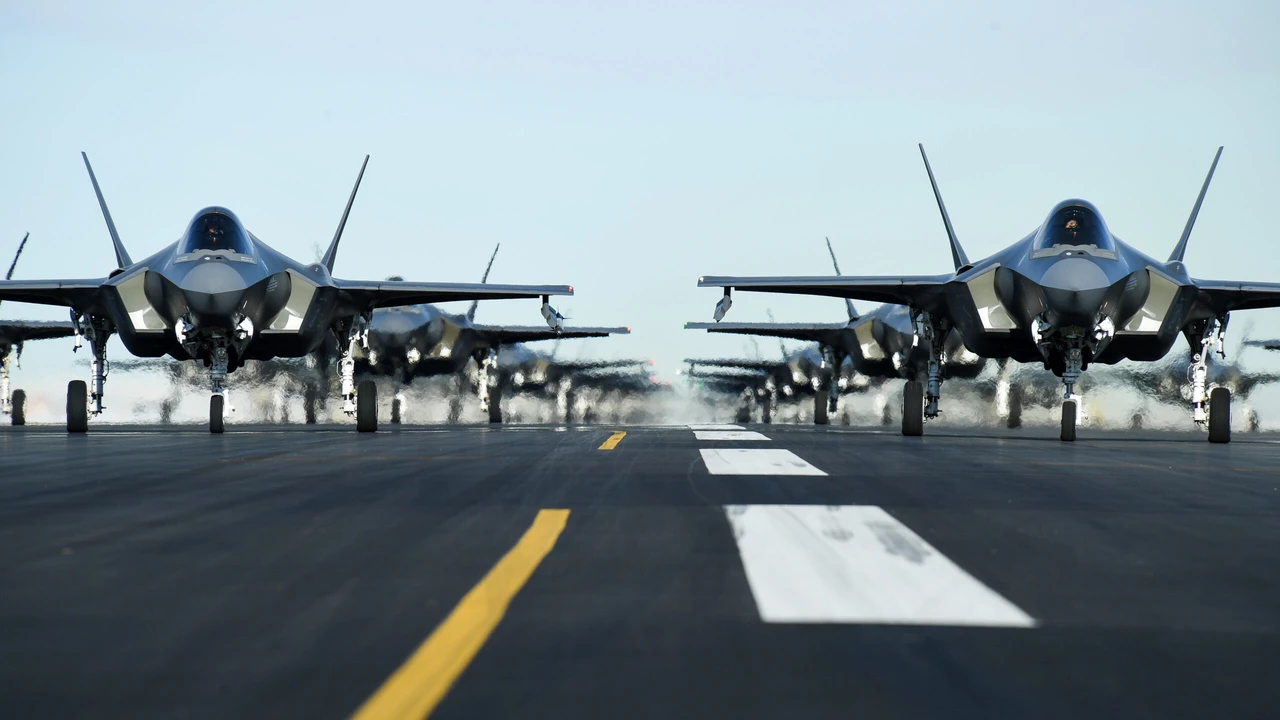Expecting another world war? Global defense giants hiring fastest in decades
 USAF F-35A aircraft, from the 388th and 428th Fighter Wings, form up in an "elephant walk" during an exercise at Hill Air Force Base, Utah, US January 6, 2020. (Reuters)
USAF F-35A aircraft, from the 388th and 428th Fighter Wings, form up in an "elephant walk" during an exercise at Hill Air Force Base, Utah, US January 6, 2020. (Reuters)
Global defense firms are looking to hire tens of thousands of employees in 2024, marking their fastest recruitment rate since the end of the Cold War, a recent Financial Times survey revealed.
Key findings from the survey include:
- Major U.S. contractors such as Lockheed Martin, Northrop Grumman, and General Dynamics have approximately 6,000 job openings. Overall, the surveyed companies aim to increase their workforce by about 37,000 positions, which is nearly 10% of their total workforce.
- According to Jan Pie, Secretary-General of the Aerospace and Defence Industries Association of Europe (ASD), there has been a significant increase in order volumes since the end of the Cold War, creating a busy period for the defense sector.
- Governments globally have ramped up military spending amid geopolitical tensions, leading to a surge in orders. This, combined with competition for digital skills, ongoing personnel shortages due to Covid, and increased demand for various positions, has fueled the hiring frenzy.
- Positions in demand range from engineers and software developers to welders and mechanics. Companies like Leonardo are actively hiring, comparable to past conflict periods.
- Collaborative projects like the new warplane program involving BAE Systems in the U.K. and Mitsubishi Heavy Industries in Japan aim to hire 6,000 new employees by the end of 2024.
- Companies are also facing challenges in hiring roles requiring additional security clearances, with some looking abroad for qualified candidates.
Overall, the defense and aviation industry’s hiring surge reflects a response to increased orders, geopolitical tensions, and competition for specialized skills, shaping the future workforce of the sector.
The European Commission had prepared plans in March to strengthen the arms industry with the aim of enabling the European Union to switch to a “war economy mode” following Russia’s invasion of Ukraine.
According to E.U. officials, Thierry Breton, the European Commissioner for Internal Market, had proposed measures to encourage member states to engage in more joint procurement for European defense industry companies and to assist these companies in increasing their production capacities.
Europe and the rest of the world have been making efforts to transition to a war economy in recent times, which is reflected in employment in defense and aerospace companies.
In February, Lt. Gen. Michael Claesson, the chief of the Swedish defense staff, described a new model for the interplay between governments and the arms industry as “public-private partnership 2.0.”



